Why Gen Z Reports Higher Anxiety Levels than Any Other Generation
Charu Sharma | Sep 05, 2025, 10:30 IST
The youngest generation, Gen Z, is the most anxious, the most worried; (to use their own words) and they say so more than any other generation. The growing trend of digital comparison, an unpredictable economy, fright due to climate change, changes in family structures, and the exhausting hustle culture that never seems to stop are some of the things that are adding up to their stress. Still, this generation is a great debater on mental health, stigma breaker, and a promoter of the issue.
Every generation has had to deal with issues throughout their lifetimes, however, Gen Z - people born approximately late 1990s to early 2010s - is the most anxious generation that has ever lived.The anxiety of Gen Z can be observed anywhere: in schools and workplaces,relationships and personal health, etc. Members of GenZ are more likely to consider themselves overwhelmed, stressed, and anxious regularly than Millennials, Gen X, or Boomers. Gen Z anxiety-related statistics are at the highest level as per multiple global surveys. Nevertheless, the question still lingers: why this generation only? They have more than enough access to information, technology, and opportunities. Still, such access is not without its hassles. The young people's living conditions are totally different from those of their parents and grandparents caused by factors such as social media pressure, climate change fear, weak economies, and changes in family structures.
1. The Digital Age and the Pressure of Constant Comparison
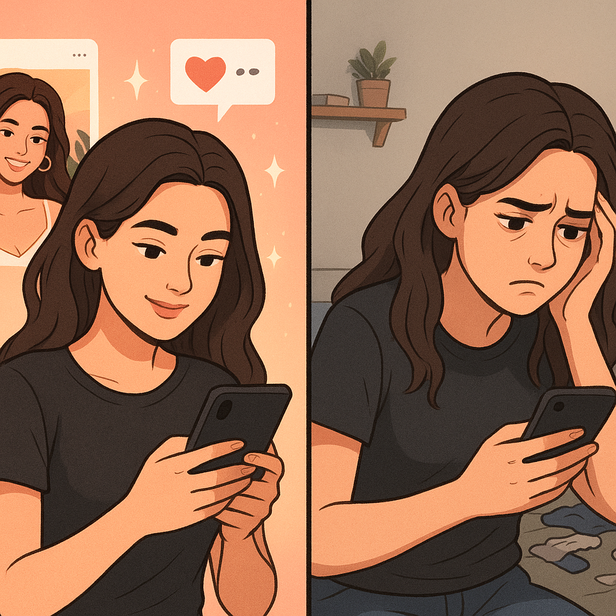
Gen Z is the first generation whose members have been digitally connected from the start. The internet for them is neither an option nor a necessity but an ever-present context of their lives. Since their early years, they have been familiar with smartphones, social media platforms, instant messaging, and the 24-hour information cycle. This type of global village has, of course, its advantages, but it is also like a scab that is being scratched on their anxiety.On Instagram, TikTok, and Snapchat, the lives of users are shown as if they are movies of the most flawless characters. Your peer may be posting pictures of exotic vacations, expensive gadgets, or perfectly loving relationships. For a 20-year-old college student, staying tuned to this all the time turns this silent competition. The old "there's always someone better than you" is never far away, even though one is doing well, and so the comparison circle keeps on.The dopamine-reward system that is the basis of liking and commenting on social media generally makes it very addictive, while the fear of missing out (FOMO) becomes a powerful factor in the feeling of anxiety caused by the sensation of being left behind. This is not just harmless scrolling-it alters the brain’s conception of its own value. Studies confirm that serious social media use leads an increase in the anxiety and depression symptoms in young adults.
2. Economic Instability and the Fear of the Future
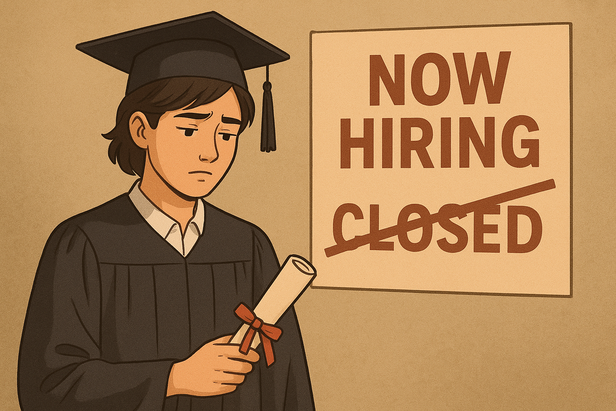
Previous generations used to visualize life as a straight, step-by-step progression: acquiring knowledge, securing a job, then moving on to comfort and stability. However, presently, Gen Z's path is somewhat ambiguous, not clear, and even somewhat shaky. The fear of the following economic recession takes up almost all the space in their minds, pertaining to their lives, way before they have officially entered the labor market; just at the moment when they were going to be employed, the COVID-19 pandemic disrupted the global economies. Besides, inflation, layoffs, and the increasing number of people working as freelancers in unstable jobs contribute to the unpredictability of their future. A considerable number of young people are obtaining degrees meanwhile doubting if such degrees would be their ticket to the future.The anxiety, however, does not only revolve around jobs but also the youth are anxious about wider life milestones as well. It is hard to attempt to buy a house. It could be seen that financial uncertainty affects marriage and children, as the two are either being delayed or given up entirely. And if we throw in the student loans that are a heavy burden most of the time, then it's not hard to understand the reason for so many members of Gen Z to be caught in debt and worry cycles.Life-threatening situations like the COVID-19 pandemic, economic recession, or a company's internal rearrangement are all powerful enough to completely eliminate the outcome of hardworking efforts made during the past years. These insecurities, that is, working thoroughly with little or no control over the outcome, give rise to the phenomenon of chronic anxiety.
3.
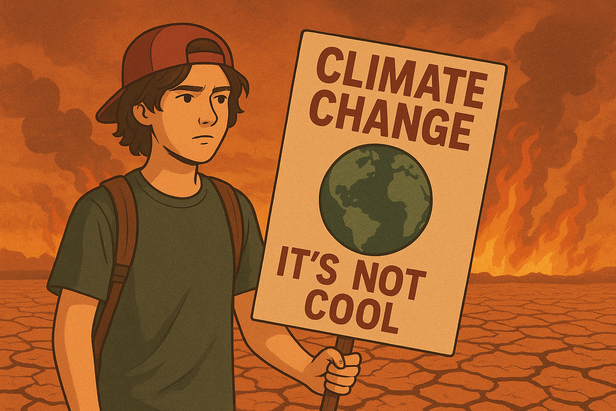
Older generations probably would have been worried about wars or political instability but Gen Z is familiar with a different kind of existential terror: the climate crisis. They keep getting the message that the earth they are going to inherit might be harsh and less hospitable through the chain of disasters that include floods, wildfires, heatwaves that are breaking the records, and sea levels that are rising. But rather than being scary fables, climate change is a reality that can be touched and felt. It, in a way, dictates their outlook on life, drives their choice of professions, and even permeates decisions such as getting children. The phrase “eco-anxiety” has become fashionable mainly because of the fact that the young cohort feels powerless in the face of the worsening of the planet while politicians argue about solutions. This awareness is like a heavy burden on their mental health. No matter how they are exhorted to recycle, conserve, and "do their part," the magnitude of the problem can still seem so gigantic that it can overshadow individual efforts. The anxiety is not solely about their lives only but also about the planet itself - a burden that is so heavy that none of the other generations has ever carried it so intensely.
4. Shifting Family and Social Structures
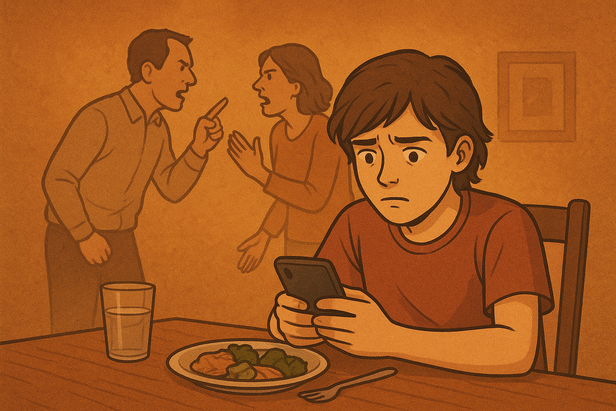
Gen Z is also dealing with family changes and new social structures that are different and confusing to them, thus increasing their anxiety levels. Most families have changed the way they function because parents both working, divorce, or going abroad for work are the trends. Although very young people are given the option of being on their own, they are mostly left in a sort of emotional desertationment feeling. A teenager who says "I feel anxious" might have the statement turned into a minor thing such as "It is just stress" or "We never had this problem growing up." Such a lack of understanding separates them further and makes them feel lonelier.Friends are not the same as before, they are less for stable in the digital world. While older generations could depend on long-term and direct-person-to-person relationships, Gen Z is typically confronted with temporary digital friends, who can even disappear with a simple unfollow. The feeling of being part of a community that was once the main mental resource is the weakest today. In addition, the set of social expectations is another cause of worry. The problem of having to be successful in studies, keeping a certain social image, and being financially independent is the practice that occurs all at the same time for many people and there is hardly any room left for mistakes.
5. The Culture of Hustle and Perfectionism
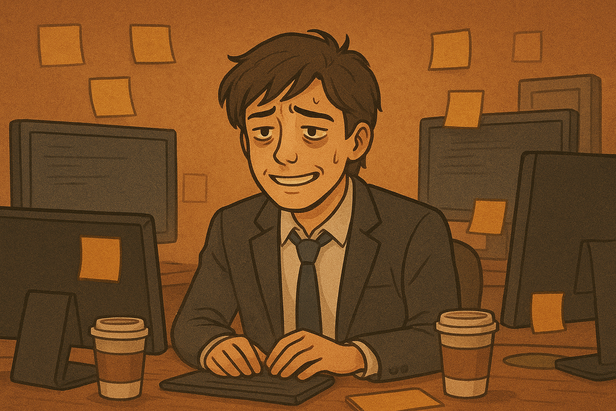
The hustle culture might be anxiety that most clearly defines the characteristics of Gen Z. Young people's social media and offices are replete with sayings such as "grind now, shine later" or "sleep is for the weak". They are relentlessly fed the idea that success is a tireless exercise of effort, multiple income streams, and constant self-improvement. At universities, students juggle academics, internships, side hustles, and social obligations yet still feel that they are not doing enough. So what is the result? Burnout at an age when previous generations were just starting to have fun. The fear of missing out is so intense that a lot of Gen Z kids suffer from “achievement anxiety,” thus even small setbacks become overwhelming. It is not laziness; rather it is a cycle of overcommitment and overexposure. Adding to this is the notion of toxic positivity that one has to always be happy, thankful, and strong irrespective of how tired they are. Rather than fostering the need for imperfection, this culture becomes an obstacle to the acknowledgment of one's struggles. Gen Z therefore finds itself in the position of faking their anxiety behind a beautiful smile and thus only prolonging their internal conflicts.
So in conclusion: Generation Z is frequently and quite unfairly labeled as being "too sensitive" or "too fragile". However, their anxiety wouldn't necessarily be a sign of a personal malaise if we looked at it more closely. It is rather a reflection of the lifetime they have been living. A tumultuous life with an emphasis on online communication, uncertain economy, climate crisis, evolving family units, and the unrelenting culture of the hustle have all contributed to a situation where anxiety is flourishing. Nevertheless, there is still a lot of spirit. Gen Z is the cohort that is most ready to have a clear and frank discussion about mental health issues, to be as open as possible to accept therapy, and to actively call for a change in the systems. They are outspoken about the elimination of stigma, undermining the overidealization of human nature, and facing up to the great problems of the planet. In fact, their worry, though agonizing, becomes the very reason that the current generation has started to talk about what the past generations have always tried to avoid. The first step in building empathy and devising solutions is to realize why Gen Z is so anxious and has such a high level of anxiety. By admitting their battles, and more importantly, recognizing and confirming their emotions, the community will be able to make a transition from being judgmental to being supportive. Anxiety is however not a Gen Z problem only. It is a reflection of the modern world's multiple stressors.
FAQs (Frequently Asked Questions) :
1. The Digital Age and the Pressure of Constant Comparison

The constant pressure of being perfect
( Image credit : Times Life Bureau )
Gen Z is the first generation whose members have been digitally connected from the start. The internet for them is neither an option nor a necessity but an ever-present context of their lives. Since their early years, they have been familiar with smartphones, social media platforms, instant messaging, and the 24-hour information cycle. This type of global village has, of course, its advantages, but it is also like a scab that is being scratched on their anxiety.On Instagram, TikTok, and Snapchat, the lives of users are shown as if they are movies of the most flawless characters. Your peer may be posting pictures of exotic vacations, expensive gadgets, or perfectly loving relationships. For a 20-year-old college student, staying tuned to this all the time turns this silent competition. The old "there's always someone better than you" is never far away, even though one is doing well, and so the comparison circle keeps on.The dopamine-reward system that is the basis of liking and commenting on social media generally makes it very addictive, while the fear of missing out (FOMO) becomes a powerful factor in the feeling of anxiety caused by the sensation of being left behind. This is not just harmless scrolling-it alters the brain’s conception of its own value. Studies confirm that serious social media use leads an increase in the anxiety and depression symptoms in young adults.
2. Economic Instability and the Fear of the Future

Sad graduatee
( Image credit : Times Life Bureau )
Previous generations used to visualize life as a straight, step-by-step progression: acquiring knowledge, securing a job, then moving on to comfort and stability. However, presently, Gen Z's path is somewhat ambiguous, not clear, and even somewhat shaky. The fear of the following economic recession takes up almost all the space in their minds, pertaining to their lives, way before they have officially entered the labor market; just at the moment when they were going to be employed, the COVID-19 pandemic disrupted the global economies. Besides, inflation, layoffs, and the increasing number of people working as freelancers in unstable jobs contribute to the unpredictability of their future. A considerable number of young people are obtaining degrees meanwhile doubting if such degrees would be their ticket to the future.The anxiety, however, does not only revolve around jobs but also the youth are anxious about wider life milestones as well. It is hard to attempt to buy a house. It could be seen that financial uncertainty affects marriage and children, as the two are either being delayed or given up entirely. And if we throw in the student loans that are a heavy burden most of the time, then it's not hard to understand the reason for so many members of Gen Z to be caught in debt and worry cycles.Life-threatening situations like the COVID-19 pandemic, economic recession, or a company's internal rearrangement are all powerful enough to completely eliminate the outcome of hardworking efforts made during the past years. These insecurities, that is, working thoroughly with little or no control over the outcome, give rise to the phenomenon of chronic anxiety.
3. Climate Anxiety : Growing Up Under an Existential Threat

Youth protesting for climate action
( Image credit : Times Life Bureau )
Older generations probably would have been worried about wars or political instability but Gen Z is familiar with a different kind of existential terror: the climate crisis. They keep getting the message that the earth they are going to inherit might be harsh and less hospitable through the chain of disasters that include floods, wildfires, heatwaves that are breaking the records, and sea levels that are rising. But rather than being scary fables, climate change is a reality that can be touched and felt. It, in a way, dictates their outlook on life, drives their choice of professions, and even permeates decisions such as getting children. The phrase “eco-anxiety” has become fashionable mainly because of the fact that the young cohort feels powerless in the face of the worsening of the planet while politicians argue about solutions. This awareness is like a heavy burden on their mental health. No matter how they are exhorted to recycle, conserve, and "do their part," the magnitude of the problem can still seem so gigantic that it can overshadow individual efforts. The anxiety is not solely about their lives only but also about the planet itself - a burden that is so heavy that none of the other generations has ever carried it so intensely.
4. Shifting Family and Social Structures

Stressed kid while parents fight in the bg
( Image credit : Times Life Bureau )
Gen Z is also dealing with family changes and new social structures that are different and confusing to them, thus increasing their anxiety levels. Most families have changed the way they function because parents both working, divorce, or going abroad for work are the trends. Although very young people are given the option of being on their own, they are mostly left in a sort of emotional desertationment feeling. A teenager who says "I feel anxious" might have the statement turned into a minor thing such as "It is just stress" or "We never had this problem growing up." Such a lack of understanding separates them further and makes them feel lonelier.Friends are not the same as before, they are less for stable in the digital world. While older generations could depend on long-term and direct-person-to-person relationships, Gen Z is typically confronted with temporary digital friends, who can even disappear with a simple unfollow. The feeling of being part of a community that was once the main mental resource is the weakest today. In addition, the set of social expectations is another cause of worry. The problem of having to be successful in studies, keeping a certain social image, and being financially independent is the practice that occurs all at the same time for many people and there is hardly any room left for mistakes.
5. The Culture of Hustle and Perfectionism

The hustle culture
( Image credit : Times Life Bureau )
The hustle culture might be anxiety that most clearly defines the characteristics of Gen Z. Young people's social media and offices are replete with sayings such as "grind now, shine later" or "sleep is for the weak". They are relentlessly fed the idea that success is a tireless exercise of effort, multiple income streams, and constant self-improvement. At universities, students juggle academics, internships, side hustles, and social obligations yet still feel that they are not doing enough. So what is the result? Burnout at an age when previous generations were just starting to have fun. The fear of missing out is so intense that a lot of Gen Z kids suffer from “achievement anxiety,” thus even small setbacks become overwhelming. It is not laziness; rather it is a cycle of overcommitment and overexposure. Adding to this is the notion of toxic positivity that one has to always be happy, thankful, and strong irrespective of how tired they are. Rather than fostering the need for imperfection, this culture becomes an obstacle to the acknowledgment of one's struggles. Gen Z therefore finds itself in the position of faking their anxiety behind a beautiful smile and thus only prolonging their internal conflicts.
So in conclusion: Generation Z is frequently and quite unfairly labeled as being "too sensitive" or "too fragile". However, their anxiety wouldn't necessarily be a sign of a personal malaise if we looked at it more closely. It is rather a reflection of the lifetime they have been living. A tumultuous life with an emphasis on online communication, uncertain economy, climate crisis, evolving family units, and the unrelenting culture of the hustle have all contributed to a situation where anxiety is flourishing. Nevertheless, there is still a lot of spirit. Gen Z is the cohort that is most ready to have a clear and frank discussion about mental health issues, to be as open as possible to accept therapy, and to actively call for a change in the systems. They are outspoken about the elimination of stigma, undermining the overidealization of human nature, and facing up to the great problems of the planet. In fact, their worry, though agonizing, becomes the very reason that the current generation has started to talk about what the past generations have always tried to avoid. The first step in building empathy and devising solutions is to realize why Gen Z is so anxious and has such a high level of anxiety. By admitting their battles, and more importantly, recognizing and confirming their emotions, the community will be able to make a transition from being judgmental to being supportive. Anxiety is however not a Gen Z problem only. It is a reflection of the modern world's multiple stressors.
FAQs (Frequently Asked Questions) :
- Why is Gen Z more anxious than older generations?
Because of unique pressures like digital comparison, climate threats, and unstable economies. - Is social media really a major cause of Gen Z anxiety?
Yes, it fuels constant comparison and FOMO, worsening self-esteem issues. - How is Gen Z coping with high anxiety levels?
They are more open to therapy, community support, and advocacy.
